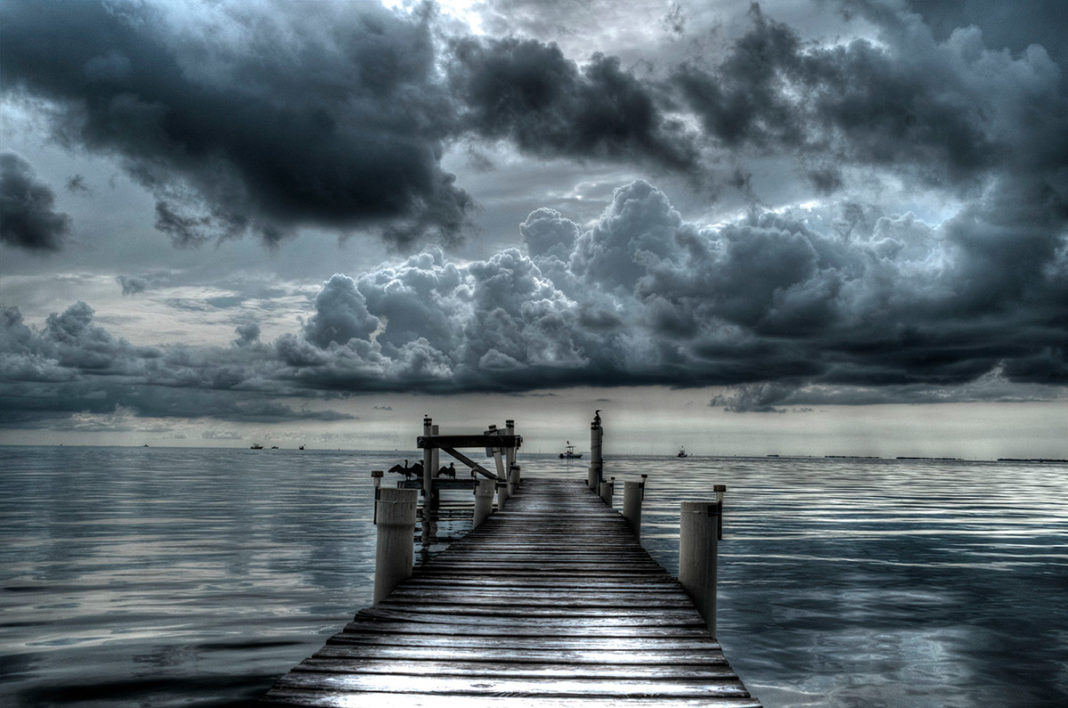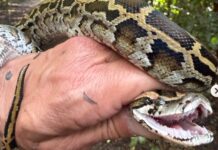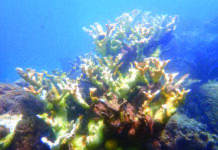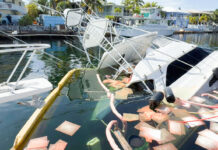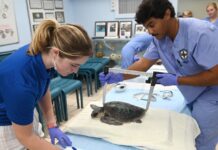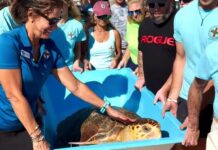By Karuna Eberl
Part 1 of 2
Since most of us don’t have time to make sense of it, here’s the summary of the UN’s report on the state of our natural world, with respect to humans’ impact, which was released in May:
A crash of biodiversity — or the millions of plants, animals and insects that interconnect to keep our natural world stable and provide us with clean water, energy, air, and food — is imminent, unless we take “immediate, radical change across society, politics, economics and technology,” say scientists associated with the report.
In other words, they say if we want to keep a semblance of our current world and life comforts beyond the next decade or two, we must shift the way humans see the land and oceans, from an economy resource to that which we have a moral responsibility to treat in a harmonious and sustainable way.
Why is this important? Without biodiversity, “the foundations of our economies, livelihoods, food security, health and quality of life” are rapidly deteriorating. Currently, $577 billion in annual global crops are at risk from pollinator loss. “We are not just talking about nice species out there; (biodiversity) is our life-support system.”
The global biomass of wild mammals has fallen by 82 percent. Only 13 percent of wetlands remain worldwide. Only 3 percent of marine areas are free from human pressure. Three-quarters of all land has been significantly altered by man, along with two-thirds of the marine environment. The world population has just about doubled since 1970. Since 1992, the world’s urban areas have more than doubled. Plastic pollution has increased tenfold since 1980. As a result, more than a million species of plant and animal are at risk of extinction in the next few decades, or less.
Land use is the main driver of the biodiversity collapse: over-fishing, over-farming, over-clearing of land, hunting and poaching. Pollution and climate change are next in line, and the latter is increasingly exacerbating the problems.
“The evidence is crystal clear. Nature is in trouble,” one of the project’s co-chairs, Sandra Díaz, told National Geographic.
How we, as a species, can stop it, according to the report:
- Shift society away from embracing GDPs and growth models, and move toward more holistic and long-term sustainability economics. In other words, we need to shift our thinking toward valuing nature and social equity, and away from the notion that consumerism equals a good quality of life; and we need to re-root our economies in nature-based planning as the foundation.
- To do that, we must end subsidies and incentives for exploitive use of resources, such as fossil fuel extraction, along with industrial fishing and agriculture, and put them into restoring and protecting nature, and driving green infrastructures.
- Another biggie is rapidly increasing the amount of land and sea under protection. The goal is 50 percent of land protected by 2050, with 30 percent by 2030 (about 15 percent is currently protected). Scientists have a proposal for how to do this, called the Global Deal for Nature, which would still allow for sustainable land uses within the protected areas. Along with these protections, greater international cooperation and enforcement of new and existing laws is also vital.
- In many places, give control of resources back to indigenous peoples and local communities, as they are often much better environmental stewards than national or corporate institutions.
What we, as Keys citizens can do:
- Vote for politicians who understand the realities of this science, and who believe this must take precedence over other political issues. With the timeline being as critical as it is, this is the most vital piece of the solution any one of us can contribute. We might not agree with a particular politician on everything (or much at all, for that matter), but we need to put our own agendas aside to get politicians in there, on all levels of government, who actually intend to put this front and center, and do something about it. The changes we need are sweeping and major, the scale that only governments can accomplish.
- Support our local nature organizations’ research and conservation work, such as the Florida Keys Wildlife Society, the Coral Restoration Foundation, and the National Marine Sanctuary Foundation. There are many worthy ones.
- Reduce meat, dairy and junk food intake. Cattle grazing takes up 25 percent of the world’s ice-free land (more than all land that is currently protected) and creates nearly a fifth of global greenhouse gas emissions. Land in the tropics is of particular concern for biodiversity, as it is being deforested at high rates to make room for more cattle and farming. As for junk food, besides containing empty calories that do no good for us and creating wrapper pollution, many also use palm oil from illegally deforested lands, and all require significant petroleum for manufacturing and shipping. Also, the importance of eating only sustainably caught fish cannot be overstated (luckily, that’s an easy one for us in the Keys).
- Reduce consumption of material goods. Simplify. Stop buying knickknacks and gag gifts. If you are a business owner, cease selling or creating such stuff. Reuse, repurpose. Keeping our ecosystems intact will require us to undergo a major shift in thinking. It will require a departure from our current lifestyle consumptions, into habits that are more ethical toward nature. This will not always be comfortable, but it will be worth it.
Our current predicament is not without hope. If we can start seeing land and water as ecosystems and not property, we have a chance.
Or in Díaz’s words, “The future will be bad for us if we don’t act now. There is no future for us without nature.”
Note: The UN report is serious science. It is the largest study of its kind, compiled by hundreds of experts from 50 countries, using about 15,000 scientific and government studies, plus indigenous and local knowledge. It is 1,500 pages long and was approved by 132 countries.
Karuna Eberl is a freelance nature journalist, living on Cudjoe Key. She invites you to email her, join this conversation, bring these issues to the forefront, and help find solutions. email karuna@wanderingdogcreations.com.















